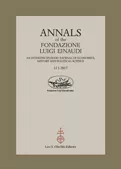This paper was inspired long ago by Jared Diamond (1997), and in particular by his extensive use of the concept of economic surplus as the key to the development of civilization. Unfortunately, Diamond does not mention the origin of the concept in classical and pre-classical economics, nor does he pay much attention to debates in economic anthropology about the role of economic analysis in studying primitive and ancient economic formations. These debates were the subject of a recent book by Cedrini and Marchionatti (2017), who dispute the neoclassical “imperialist” attempt to occupy the territory of economic anthropology. The authors rely on the institutionalist background provided by Karl Polanyi and his substantivist tradition and by other anthropologists of similar inspiration. Substantivists, however, fail to complete their institutional analysis by anchoring it to the changing modes of generation and distribution of the economic surplus. Yet their emphasis on the need to introduce institutions from the beginning, when speaking of economic surplus, should be taken into consideration by the classical surplus approach.



